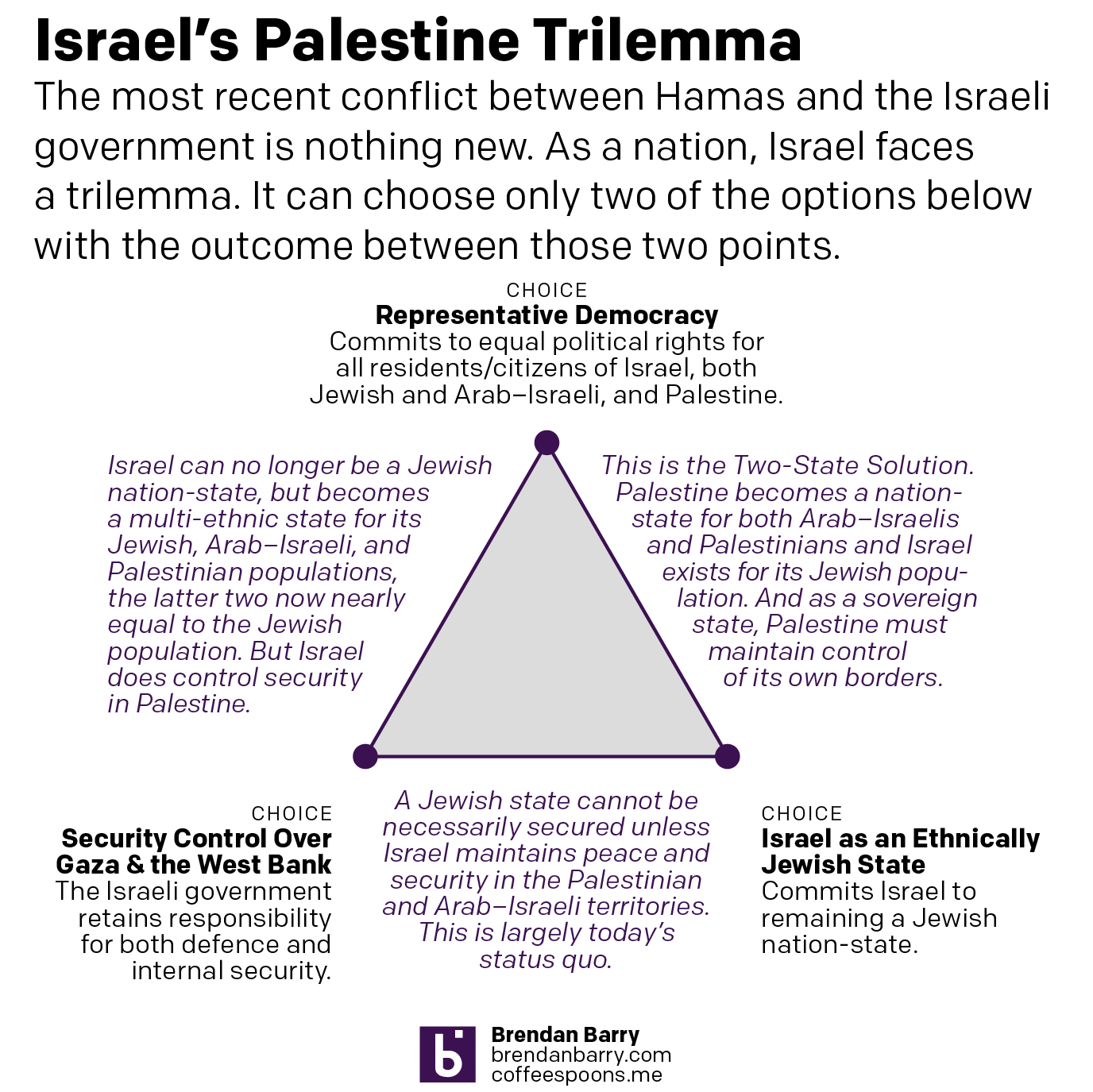In what feels like forever ago, I wrote about the trilemma facing the British government as it related to Brexit. Brexit presented Westminster with three choices, of which they could only make two as all three were, together, impossible. Once made, those two choices determined the outcome of Brexit. For better or worse, Prime Minister Boris Johnson made that decision.
We can apply the same trilemma system to Israel in relation to the circumstances of Israel and Palestine. I will skip the long history lesson here. Israel faces some tough decisions. I will also skip the critique of Israeli government policy over the last few decades that brought us to this point. Because here is where we are.
Israel needs to balance three things: the importance of being a representative democracy, of being a Jewish state, and of security control of Gaza and the West Bank for the security of Israel. Here is how that looks.

If Israel wants to remain an ethnically Jewish state—I’m going to also skip the discourse about Jewishness as an ethnicity, though I will point to Judaism as an ethnic religion as opposed to the other Abrahamic universal religions of Christianity and Islam—and it wants to be retain security control over Palestine, i.e. the Gaza Strip and the West Bank, you have what we have today.
If Israel wants to remain an ethnically Jewish state and it wants to be a representative democracy, you get the Two-State Solution. In that scenario, Palestine, again conceived as Gaza and the West Bank, becomes a fully-fledged independent and sovereign state. Israel remains Jewish and Palestine becomes Arab. But, Israel loses the ability to police and militarily control Gaza and the West Bank, instead relying on its newfound partners in the Palestinian Authority or whatever becomes the executive government of Palestine. This has long been the goal of Middle East peace plans, but over the last decade or so you hear Two-State Solution less and less frequently.
Finally, if Israel wants to be a representative democracy, in which case both Jewish citizens and Arab–Israelis and Palestinians all have the right to full political representation without reservations, e.g. the loyalty oath, and it wants to maintain security control over Gaza and the West Bank, you get something I don’t hear often discussed outside foreign policy circles: a non-Jewish, multi-ethnic Israel. Today Arab–Israelis and Palestinians nearly—if not already—outnumber Jewish Israelis. In a representative democracy, it would be near impossible to maintain an ethnically Jewish state in a county where the Jewish population is in the minority. Consequently, Israel would almost certainly cease being a Jewish state.
One can tinker around the edges, e.g. what are the borders of a Two-State Solution West Bank, but broadly the policy choices above determine the three outcomes.
The outstanding question remains, what future does Israel want?
Credit for the piece is mine.
